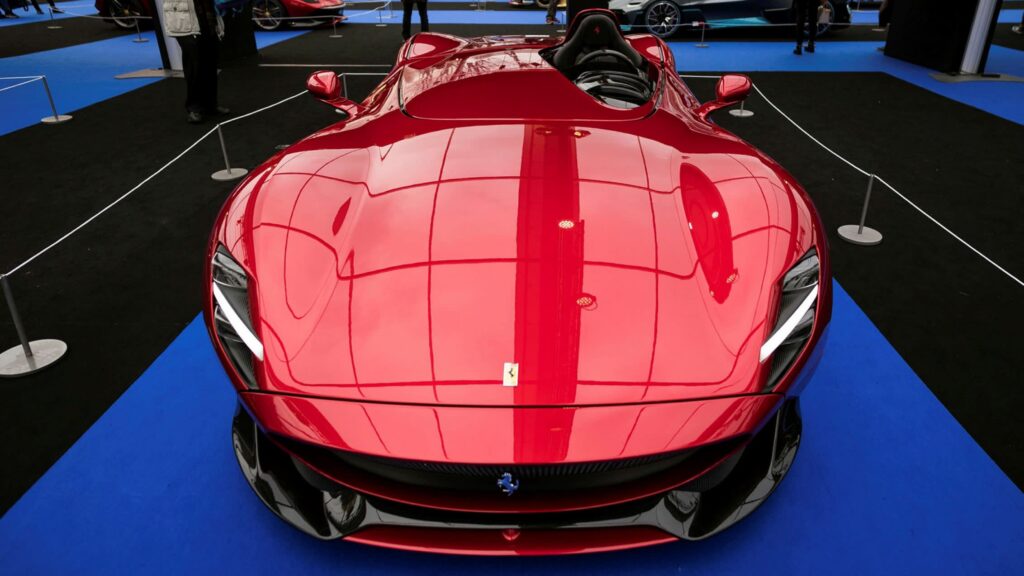Ferrari posts record profits as it prepares to set out electric strategy


Ferrari’s profits rose to record levels as the supercar maker prepares to forge new technology partnerships and set out its electric strategy in the coming months.
The supercar maker shrugged off pandemic issues that have dogged the wider car industry, such as chip shortages, to post record sales, and profits that were higher than before the pandemic.
Margins at Ferrari, which is also preparing to launch its first utility vehicle — the Purosangue — in 2022, were helped by strong demand for its V8-powered models, including the SF90, a £380,000 hybrid supercar.
Chief executive Benedetto Vigna, who joined the group from STMicroelectronics, is planning to unveil a new strategy in June, which will include a pathway to becoming fully carbon-neutral by 2030.
On Wednesday, he promised “important technology partnerships” for the company “in the near future”, on top of the brand’s current relationship with Amazon Web Services.
Vigna, who took over in September and has brought in two former colleagues, has been tight-lipped on his approach to electric cars, which are essential to the brand’s future but lack the visceral engine noise that forms part of its appeal.
“We are aware of the different feelings and different emotions the customers want with different propulsion schemes,” he told investors. “We have to delight customers, whether we are moving pistons or moving other things.”
Last year, before Vigna joined, the brand announced plans to release its first pure electric car in 2025, around the same time that both Bentley and Aston Martin plan battery-only models.
Vigna admitted that Ferrari faced cost increases with aluminium and energy bills, but said the group was “monitoring carefully” and would decide whether to raise prices this year.
While most carmakers have suffered from chip shortages, a handful of low-volume luxury brands have been able to swerve the crisis by paying higher prices.
Net profit for last year rose to €833mn from €609mn in 2020, and is higher than the €699mn reported in 2019, though profits in the final quarter fell from €263mn to €214mn.
Annual revenues rose 23 per cent to €4.3bn, while the number of cars sold climbed from 9,119 to 11,155. Shipments last year climbed in every market, with sales to China, Hong Kong and Taiwan doubling.
Demand for the F8, the replacement for the company’s 488 staple model, helped boost sales.
Profits were also helped by the SF90 hybrid supercar, which saw some sales delayed from 2020 into 2021, helping the year’s performance, as well as higher levels of customer personalisation.
The number of V12-powered cars sold fell 16 per cent due to the phaseout of the 812 Superfast, while V8 sales rose 35 per cent because of the T8, SF90 and the Roma model.
Ferrari forecast adjusted earnings this year will increase to €1.1-€1.15bn, compared with €1.08bn during 2021, and expected revenues to reach €4.8bn. Shares, which have advanced a fifth over the past 12 months, rose 2 per cent to €210.40 by the market close.